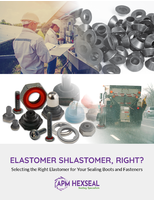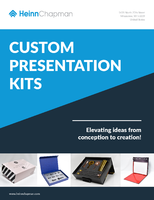Digital Compass uses magnetic field measurement principle.
Share:
Press Release Summary:
Housed in 3 x 3 x 0.95 mm LGA package, Model BMC050 integrates triaxial geomagnetic sensor for measuring Earth's magnetic field and triaxial acceleration sensor for tilt compensation. Device features 0.3 µT sensitivity with power consumption of 0.54 mA during normal operation. Using FlipCore measurement principle, Model BMC050 achieves 0.5° angular resolution at 1,000 µT measurement field. Integrated MEMS sensors are suited for compass-based functions in cell phones and navigation devices.
Original Press Release:
BMC050 - the First Digital Compass Featuring the New "FlipCore" Magnetic Field Measurement Principle
Triaxial geomagnetic sensor plus triaxial acceleration sensor
"Individual, specific sensors from manufacturers of mobile devices are not the only types of sensor that will be used in the future in the highly competitive consumer electronics market. Rather, the aim is to fuse different sensors into one component which, in conjunction with intelligent software, represents a system solution and therefore means significant added value for the customer", said Dr. Frank Melzer, CEO of Bosch Sensortec. With the digital compass BMC050, the Bosch subsidiary launches a new series of high-precision MEMS sensors for compass-based functions in cell phones, navigation devices and other mobile devices.
With an edge length of just 3 millimeters and a height of 0.95 millimeters, this component is the smallest mass-produced "eCompass" in the world. Sensor fusion has been used in the LGA housing: Two sensors are integrated into a very small space - a triaxial geomagnetic sensor for measuring the Earth's magnetic field and a triaxial acceleration sensor for tilt compensation. The magnetic sensor utilizes the new "FlipCore" measurement principle developed by Bosch. Compared with currently available Hall-based measurement techniques, this sensor only requires around a third of the power, while the noise has also been reduced by almost a third. The six-axis BMC050 features high sensitivity of 0.3 microtesla and low power consumption during normal operation at 0.54 milliamps.
Complete solution from one single source
Bosch is the only supplier on the market that produces all MEMS sensors itself and therefore is not reliant on components from external suppliers. The sensor developers have provided the eCompass component with sophisticated evaluation algorithms that are perfectly coordinated with the BMC050 for calculating direction reliably and precisely from the sensors' raw data - precision is a key criterion for the developers of consumer electronics. Also included is the software for integrating the eCompass into the host application. It is available for all conventional cell phone operating systems, keeping device manufacturers' costs and the effort relating to programming and development to a minimum. Moreover, the engineers from Bosch Sensortec provide support with regard to the integration work of the BMC050 and its software.
Know-how: the new FlipCore measurement principle
To calculate the direction, the BMC050 measures the strength of the Earth's magnetic field as a vector along the three spatial directions. In the new FlipCore measurement principle, a magnetic layer of just a few millionth of a millimeter thickness is magnetically reversed periodically. At the time of each magnetization reversal a detector coil, also manufactured in MEMS thin-film technology, outputs a voltage pulse. This pulse train is the sensor's raw information, since the temporal distance between applied and detected signal depends on the strength of the operating terrestrial magnetic field. Approximately 0.5 degree angular resolution at 1000 microtesla measurement field is attained with this measurement method.
The new measurement technique is based on the many years of experience that Bosch has in the development of MEMS and magnetometer technology. The new FlipCore sensors are manufactured at Bosch's wafer fabs in Reutlingen using tried-and-tested semiconductor manufacturing processes.
eCompass makes new mobile applications accessible
This digital compass provides new services to mobile consumer electronics, and these go far beyond merely displaying the direction. With eCompass, a pedestrian navigation system at any location can accurately record any body rotation straight away. There is no need to branch off for short distances, which is necessary for map alignment when using the GPS. Augmented Reality is supported by the sensor too: If a traveller points at a place of interest with his cell phone, for example directly in front of him, then relevant background information can automatically be imported into the device. While in the past the acceleration sensors inspired the ingenuity of device developers, now eCompass functions also guarantee that there will be new and surprising innovations in the future.
Bosch Sensortec GmbH is a fully owned subsidiary of Robert Bosch GmbH. It develops and markets micro-mechanical sensors for consumer electronics, mobile phones, safety systems, industrial technology and logistics. The product portfolio includes triaxial acceleration sensors, barometric pressure sensors and a comprehensive software portfolio for various applications. Since its foundation in 2005 Bosch Sensortec emerged as the technology leader in the addressed markets. The Bosch Group has been the global market leader for MEMS sensors since 1998 and has to date sold more than 1.6 billion MEMS sensors.
For more information, go to www.bosch-sensortec.com
The Bosch Group is a leading global supplier of technology and services. In the areas of automotive and industrial technology, consumer goods, and building technology, some 285,000 associates generated sales of 47.3 billion euros in fiscal 2010. The Bosch Group comprises Robert Bosch GmbH and its more than 350 subsidiaries and regional companies in over 60 countries. If its sales and service partners are included, then Bosch is represented in roughly 150 countries. This worldwide development, manufacturing, and sales network is the foundation for further growth. Bosch spent 3.8 billion euros for research and development in 2010, and applied for over 3,800 patents worldwide. With all its products and services, Bosch enhances the quality of life by providing solutions which are both innovative and beneficial.
Additional information can be accessed at www.bosch.com, www.bosch-press.com, and www.125.bosch.com




